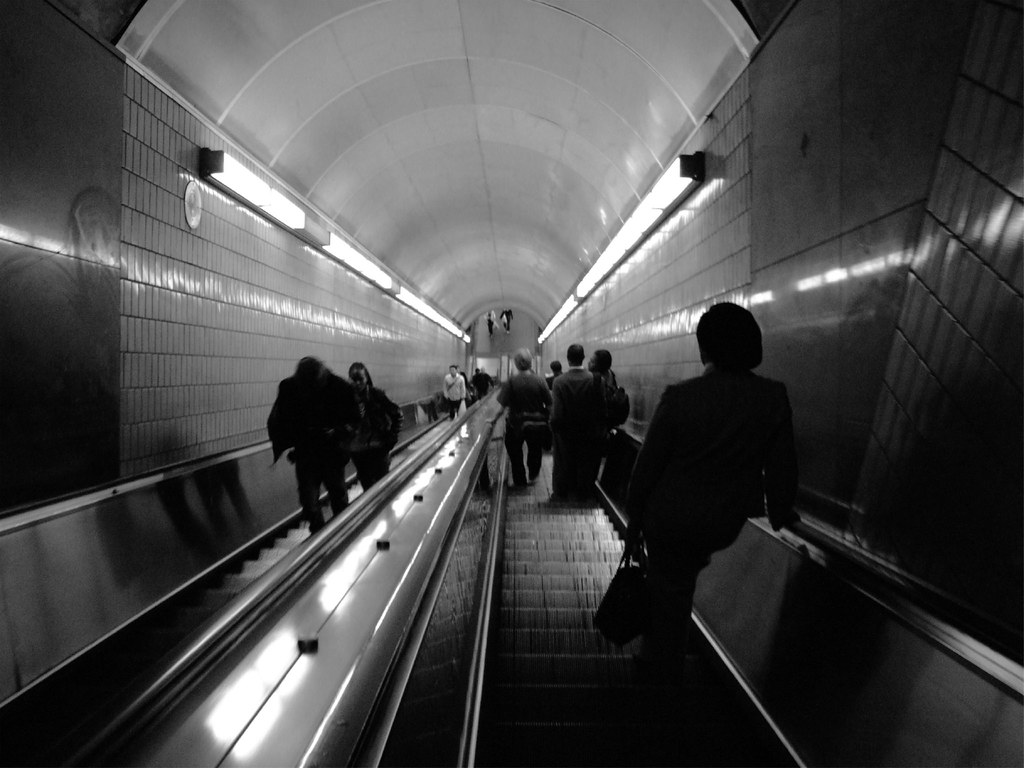By: Stephanie Premji
 Dr. Stephanie Premji is Associate Professor in the School of Labour Studies in the Faculty of Social Sciences at McMaster University in Hamilton, Ontario. As a co-investigator with the On the Move Partnership, Stephanie worked with Access Alliance to look at the relationship between precarious employment and geographical mobility among immigrant workers in Toronto. This research is featured in the OTM Working Paper, Mobility in a Pandemic: COVID-19 and the Mobile Labour Force by Barbara Neis, Kerri Neil, and Katherine Lippel.
Dr. Stephanie Premji is Associate Professor in the School of Labour Studies in the Faculty of Social Sciences at McMaster University in Hamilton, Ontario. As a co-investigator with the On the Move Partnership, Stephanie worked with Access Alliance to look at the relationship between precarious employment and geographical mobility among immigrant workers in Toronto. This research is featured in the OTM Working Paper, Mobility in a Pandemic: COVID-19 and the Mobile Labour Force by Barbara Neis, Kerri Neil, and Katherine Lippel.
Last March, from her bathtub, singer Madonna called COVID-19 “the great equalizer”: “It doesn’t care about how rich you are, how famous you are, how funny you are, how smart you are, where you live, how old you are, what amazing stories you can tell.” Over the past two months, as the pandemic has unfolded, it has become abundantly clear that what one does for a living and where one lives have in fact a lot to do with their risk of contracting the virus (Peterson and Bessonov, 2020). It is unfortunately not surprising, given long standing patterns of racial health inequalities, that low income racialized individuals are disproportionately bearing the brunt of the pandemic (Chung et al., 2020). Also unsurprising are suggestions that genetic or lifestyle factors are at play (Westwood and Serfaty, 2020), given the long history of blaming the victims for their health conditions. This is despite ample evidence that environmental and occupational factors explain the vast majority of health inequalities, including the co-morbidities that may exacerbate the impacts of the virus.

Systematic privilege and oppression are reflected in where and how people live, work and commute, and these dimensions have everything to do with who does and doesn’t get sick in the context of COVID-19. In a city such as Toronto where housing prices are largely unaffordable, low income racialized individuals often live in crowded apartments where physical distancing is difficult or impossible, such that clusters of infection have been concentrated in racialized neighbourhoods with denser housing (Allen, 2020a; Arthur, 2020; Chung et al., 2020). They also often work as cleaners, factory workers, personal support workers, and taxi drivers, to name but a few occupations, where the risk of contracting the virus is elevated due to factors such as contact with the public, lack of personal protective equipment, and lack of adherence by employers to other public health protocols (Allen, 2020b). As well, low-income racialized individuals overwhelmingly rely on public transit to get to and from work, since they usually lack access to a car and may not be able to use a bicycle due to the lack of jobs in their communities and the resulting large commuting distances. In fact, in Toronto, neighbourhoods with longer average commute times have been shown to have higher infection rates Crowding on public transit during the pandemic was also found to be limited to certain bus routes predominantly used by shift workers from racialized neighbourhoods (Allen, 2020a; Spurr, 2020).
In other words, low income racialized individuals do not benefit from the privilege enjoyed by their white, better off counterparts who may have the ability to work from home and therefore protect themselves and their families from infection. The virus discriminates as black and brown bodies are what it comes upon. These issues are made worse by the lack of paid sick leave in low-income jobs and the fear of exercising, and lack of enforcement of, the right to refuse unsafe work. In the US in particular, where there is no universal health coverage, testing and treatment differences along racialized lines may also play a role in the differential toll the virus takes on communities. As the economy re-opens without adequate testing and contact tracing, the age-old choice between economic survival and health will be made by many more workers, many of whom are low-income and racialized, threatening to worsen already wide health inequalities.
Works Cited
Allen K (2020a) As Toronto COVID-19 hotspot maps show an unequal toll, Ontario has yet to start collecting income and race data. The Star, 28 May. Available at: https://www.thestar.com/news/gta/2020/05/28/as-toronto-covid-19-hotspot-maps-show-an-unequal-toll-ontario-has-yet-to-start-collecting-income-and-race-data.html (accessed 1 June 2020).
Allen K (2020b) This Black PSW with COVID-19 was sent home from hospital. Two days later he died. The Star, 23 May. Available at: https://www.thestar.com/news/gta/2020/05/23/this-black-psw-with-covid-19-was-sent-home-from-hospital-two-days-later-he-died.html (accessed 27 May 2020).
Arthur B (2020) Critical care doctor says the ‘inexcusable’ Ontario public health strategy is wasting the lockdown. The Star, 20 May. Available at: https://www.thestar.com/opinion/star-columnists/2020/05/20/critical-care-doctor-says-the-inexcusable-ontario-public-health-strategy-is-wasting-the-lockdown.html (accessed 27 May 2020).
Chung H, Fung K, Ferreira-Legere L, et al. (2020) COVID-19 Laboratory Testing in Ontario: Patterns of Testing and Characteristics of Individuals Tested, as of April 30, 2020. IC/ES. Available at: https://www.ices.on.ca/Publications/Atlases-and-Reports/2020/COVID-19-Laboratory-Testing-in-Ontario (accessed 13 May 2020).
Peterson S and Bessonov A (2020) Why new data tracking COVID-19 spread by neighbourhood, income is so important. CBC, 31 May. Available at: https://www.cbc.ca/news/theweekly/why-doctors-say-it-s-crucial-to-focus-on-covid-19-spread-in-working-class-neighbourhoods-1.5591616 (accessed 1 June 2020).
Spurr B (2020) Some Toronto bus routes still crowded despite COVID-19. What about social distancing? The Star, 27 March. Available at: https://www.thestar.com/news/gta/2020/03/27/some-toronto-bus-routes-still-crowded-despite-covid-19-what-about-social-distancing.html (accessed 27 May 2020).
Westwood S and Serfaty S (2020) HHS secretary tells lawmakers lifestyles of meat-processing plant employees worsened Covid-19 outbreak. CNN, 7 May. Available at: https://www.cnn.com/2020/05/07/politics/alex-azar-meat-processing-plants/index.html (accessed 27 May 2020).
Photo Source
Jeff Futo, “Atlanta, Georgia.” CC BY 2.0
https://www.flickr.com/photos/21765388@N00/3009177613


Leave a Reply